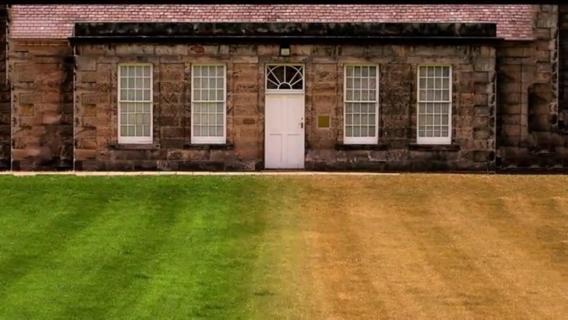With global warming becoming more noticeable every year, we can probably say that we will be getting more and more hot weather in the future. That’s all well and good for people that love getting a tan but not so good for your cool-weather grass.
When the weather warms up it can stress out your turf. The main thing is not to worry. Grass is a hardy and resilient plant which will bounce back when the weather cools down and the rains return. However, here are a few tips which will help against the side effects of a heatwave.

Mow High
The longer the grass blades, the more it will shade the soil and help it from drying out. Cutting it too short will make it weaker and and less drought tolerant. Remember, all the energy is in the top part off the grass which will go back into the root when it goes dormant. Chopping off the top too much will remove that energy.
Aeration, Aeration, Aeration
I know we keep banging on about it all the time, but aeration is really key to having a great lawn. That’s why all our customers have it done at least once a year. When the lawn becomes dry it can become hydrophobic which means it starts to repel water and won’t allow it to soak in. Aeration helps create gaps between the soil particles, among other things, and this allows water to get in and creates a healthier soil overall.
Add Some Shading and Less Traffic
By adding a patio umbrella, wind breaker or a garden sail will help create some shade. The grass will be much happier if it’s protected from the direct sun and from people trampling all over It. This is why grass can look so green under a trampoline. – Remember that shading can obstruct rainfall!
Low Nitrogen
This is where a lot of people mess up and is a big mistake. High nitrogen feeds are not good for a lawn when it’s stressed from the heat. It can suck the moisture out of the plant and scorch it. Lawns Matter use the best organic soil conditioner during the hot season which won’t scorch and will help the lawn bounce back when it does start to get some moisture.
Irrigation
The reason the lawn goes brown is simply lack of water over a long period. To stop this from happening it’s best to water heavily and infrequently, as opposed to shallow and often. This will allow the water to get right down to the roots where it needs to be. Either first thing in the morning or late evening when the sun is at its weakest. It has less chance to evaporate and you won’t be wasting water and money.
